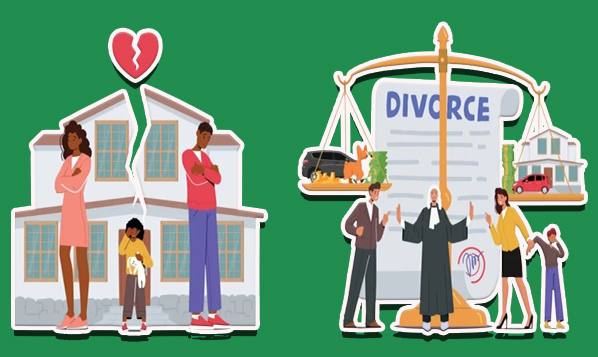Divorce can be emotionally difficult for spouses and their loved ones, but procedural concerns such as life insurance should be considered when such situations arise. Even in the most tranquil divorce, substantial financial issues can occur, so seek clarity if you have any questions or worries about life insurance or divorce settlements. However, how does life insurance works during a divorce?

In addition, most people who currently have a policy might need to modify it to fit their current situation. This article provides insight into how life insurance works during a divorce and suggests actions to consider if you’ve recently separated from your spouse.
How Life Insurance Works During a Divorce
If you have a life insurance policy, you must know how divorce works during challenging circumstances. In addition, you can keep it in force to assist your children or ex-spouse financially. However, if the plan includes a cash value component, it can be split between you and your former spouse as a marital asset. If your divorce includes alimony or child support, you may need to keep your coverage in place. In certain situations, you can also provide coverage to your ex-partner.
What Occurs During a Divorce With Life Insurance
The judicial process that follows filing for divorce typically entails disbanding the legal relationship, allocating assets and property, and settling issues with child support, spousal support, and custody.
Some of the factors that affect life insurance policies during a divorce include the following:
- A specific type of policy.
- States with various divorce laws.
- Conditions of the settlement you received from your divorce.
Divorce is a huge life transition that can be difficult and upsetting. Moreover, it’s typical to check important aspects of your life at this time, like housing arrangements, child custody, and retirement planning. For this reason, it’s crucial to put your financial future first. Additionally, don’t underrate the value of life insurance in your long-term estate planning.
How Should You Adjust Your Life Insurance After a Divorce
There are a few reasons to keep your ex-spouse on your beneficiary list if there are no children involved. If the policy has a monetary value, you can cash it out and share the proceeds with your former partner. If one spouse has primary custody and receives alimony or child support, a life insurance policy on the other ex-spouse may be a beneficial option. The ex-spouse’s death necessitates a substantial benefit to cover the income until the children’s legal status is established.
How Much Life Insurance Does a Divorced Parent Require
Your insurance payout should cover your entire income and safeguard your minor children’s financial interests. Generally, you should multiply the number of years until your youngest child turns 18 by your yearly income. To pay premiums and increase the benefit, you can skip counting years until the youngest turns 21, instead.
When sharing custody, parents should determine what will best protect their kids. Noncustodial parents with ex-spouses providing care or financial support should acquire life insurance to cover the loss of the custodial parent.
Is Life Insurance a Marital Asset
Your life insurance policy may or may not count as a marital asset. Permanent plans that have a cash value component, such as whole or universal life insurance, are considered marital property. Term life insurance plans are not considered marital assets since they lack monetary value.
Who Will Pay Life Insurance Premiums After A Divorce
Your ex-spouse might need to carry life insurance and pay the payments if you are granted custody or alimony. If you are eligible for insurance ownership, you must pay the premiums yourself to prevent a coverage lapse.
How to Manage Life Insurance in a Divorce
Married couples commonly get life insurance to pay off debts and other financial responsibilities, whether current or prospective. Even if a couple wishes to divorce, these obligations may continue. As a result, while divorcing someone, it is critical to analyze current life insurance policies. Before filing a divorce complaint, you may need to provide proof of your current assets, liabilities, and insurance policies to guarantee that all life insurance is reviewed.
How you approach life insurance requirements will be determined by your current and future needs, with the cost of keeping the coverage. Let’s assume you and your spouse both want to keep your term life insurance coverage. You can both opt to be the other person’s policyholder and beneficiary. You and your spouse can cancel your cash value life insurance policy and then share the cash amount equally. Surrender charges are an additional factor to take into account, as they lower the surrender value of an insurance policy.
Final Thoughts
Life insurance is one of the many areas of your financial future that might be impacted by divorce. Since every divorce is different, speak with a divorce lawyer to learn how life insurance works and how it might affect the proceedings. For new policy applicants, most insurers offer reasonably priced options for both whole life and term insurance. Furthermore, to find out more, get a quote and talk to an agent.

